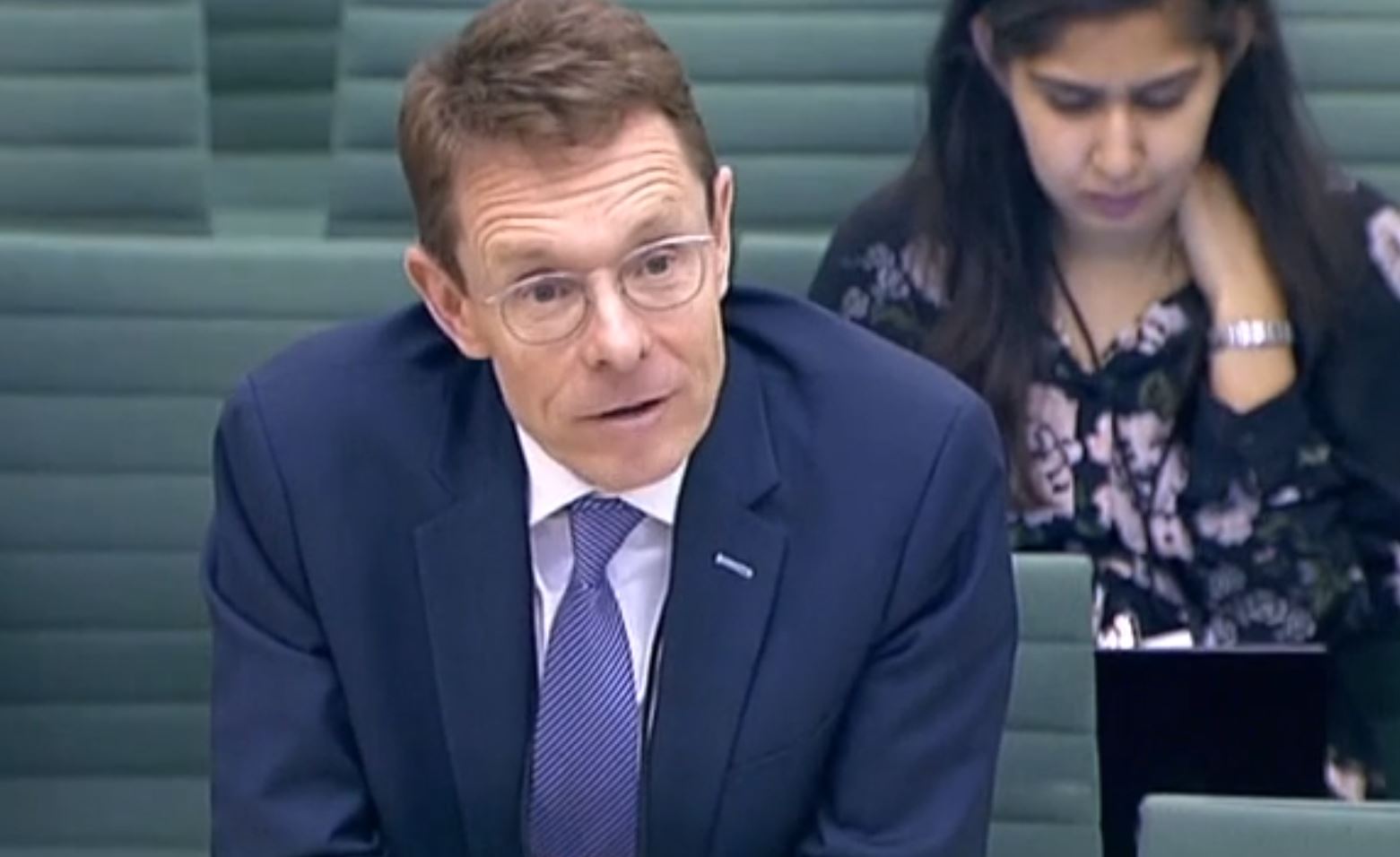Mayor Andy Street: Overhaul business rates system to save struggling high streets
Published: Tuesday 04 Jun 2019
Andy Street has today called for a wholesale review of Britain's business rates system in an attempt to save struggling high streets.
In an appearance at the Treasury Select Committee, the Mayor of the West Midlands and former John Lewis Managing Director said business rates fall disproportionately on the retail and manufacturing sectors, arguing the system must be overhauled in order to help town centres.
Whilst acknowledging the welcome changes made by Chancellor of the Exchequer Philip Hammond, the mayor also warned that the series of reliefs brought in by the Chancellor are not sustainable, and that a full review of business rates is now required to make the system, which only makes up 4% of total taxation but heavily impacts on the fortune of high streets, fit for purpose again.

Mayor Andy Street at the Treasury Select Committee
When pressed on what changes he would like to see made, Mr Street called for reduced rates for new and expanding businesses, as well as a 100% relief for public sector organisations who bring their services into high street units.
The ideas form part of Mr Street's plan to turn town centres into free trade zones", which would give enhanced powers to local authorities and more support for shops and local businesses.
The model - which has successfully led to rapid economic development across the world, particularly in Asia and the Middle East - sets the tax, planning and customs arrangements for trade to develop. To help make this model work, Mr Street has proposed:
- Reduced business rates and ability for local authorities to grant business rate relief for new or expanding businesses.
- 100% business rate relief on public sector organisations like the NHS or further education colleges who bring their public services into units on the high street.
- Special planning conditions, for example, to allow rapid change of use on high streets, to allow flats to be built in town centres quickly, and to fast track public realm improvements and new green spaces
- Additional policing, infrastructure, and public realm spending for businesses, funded by increased taxation of online businesses such as Amazon
This proposal builds on the Mayor's 12-point Blueprint for the Modern British Town Centre, which was published last year (see below). His plan proposes twelve different elements which local leaders should consider when trying to create thriving and successful places for their people - including urban living, co-working spaces and public services in town centres, and making sure areas are green, clean and safe.
As part of Mr Street's commitment to aid struggling high streets, the West Midlands Combined Authority (WMCA), which he chairs, has launched a £20 million town centres regeneration programme to regenerate five areas: Bilston, Dudley, Walsall and West Bromwich in the Black Country and Bordesley Green in Birmingham.
He has also set up the Town Centre Taskforce, an expert panel chaired by managing director at HSBC Commercial Banking Jon Bramwell, to offer advice on measures to revitalise high streets.
Mr Street said: Our town centres and in particular our high streets are the heart of where we live, and they are having a tough time. We need to think originally to come up with practical solutions to help them thrive again.
This ‘free trade zone' idea would create the special conditions that our town centres need, including reducing business rates, special planning rules, and new town centre funding from a tax on online businesses.
Here in the West Midlands, we are already making progress with our Town Centres Programme, but there is much more still to do so that we can all be proud of our high streets once more
Andy Street's Blueprint for the Modern British Town Centre
Every high street and town centre in the UK has its own unique characteristics, and there is no ‘one-size' solution to the challenges they are facing. This ‘blueprint' sets out my view of twelve different elements which local leaders should consider when trying to create thriving and successful places for their people.
|
Action point |
Case Study |
|
Waitrose puts on cookery courses in some of its stores for people to get more than their weekly shopping. |
|
Walsall Waterfront has brought contemporary culture to bear on the area, with the creation of the Walsall New Art Gallery. |
|
Apply the lesson of our major cities, where urban living has tripled since 2000, to our town centres and high streets |
|
The Exchange in Moseley hosts buzzing creative startups |
|
In Dorridge, Solihull, Sainsburys built a doctor's surgery and small retail units alongside their main store |
|
The approach to Coventry city centre from the railway station past Friargate, is clean, green, landscaped and even has outdoor gym equipment, such as an exercise bike for people to charge their phones |
|
In central Birmingham, the Colmore Business District has appointed wardens to give helpful and reassuring support to businesses and visitors. |
|
The extension of the West Midlands Metro from Wednesbury to Dudley and Brierley Hill will bring people into those town centres quickly and easily |
|
‘Click & Collect' is now a commonplace service for online customers who want to pick up their items in store |
|
Bullring and Grand Central at Birmingham ‘curate' the shopping experience in its choice of tenants |
|
Amazon's UK reported Corporation Tax bill last year was only £4.6 million |
|
Soho Road's Diwali celebrations in Birmingham are run by the local Business Improvement District |
